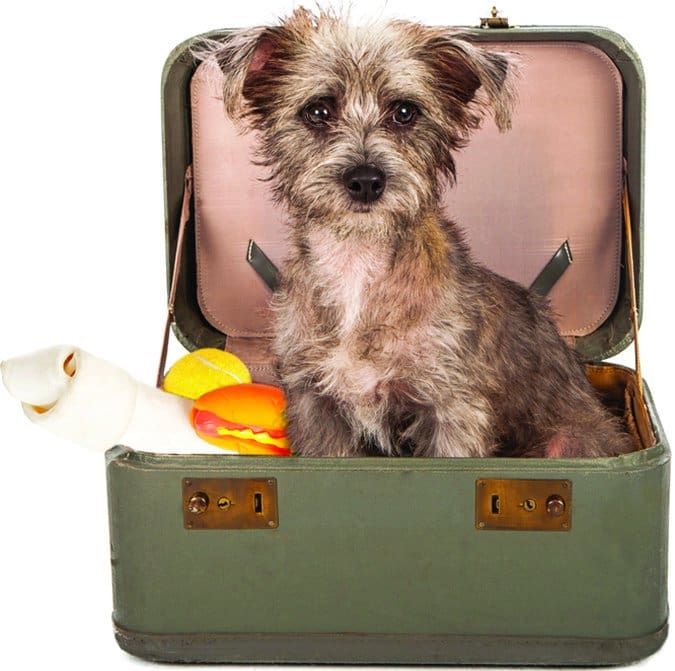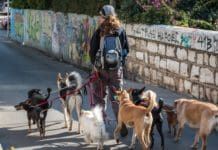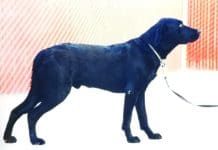Don Hanson, owner of Green Acres Kennel Shop in Bangor, Maine, and Allison Bennett of Warms Hearts, Cold Noses, in North Hatley, Quebec, helped me compile this list of tips – ways to make boarding your dog a good experience for everyone involved, and to help clarify why kennel operators have the rules they do.

A Dog’s Life Photo|Dreamstime.com
1. If your dog requires medications, bring them in the original containers that are labeled with dosage instructions as prescribed by your veterinarian. Pack a couple of additional days’ worth in case you are delayed returning home.
2. Portion your dog’s food into Ziploc bags (or small Ziploc-type containers if not kibble), one for each feeding. Pack a few extra days’ worth in case you are delayed.
3. Provide an emergency contact and make sure that the contact knows you have chosen her, and that she understands she needs to be available and able to respond if called.
4. If you are going to have someone else pick up your dog from the kennel at the end of his stay, make sure the facility knows this in advance. No kennel should release your dog to anyone other than you unless you have confirmed this in advance. (Check the kennel’s payment policy; the person picking up may have to settle the bill if you haven’t already made other payment arrangements.)
5. Having someone visit or “check in” with your dog while they are at the kennel can be good or bad. It might be a nice break for your dog if the person takes them out for several hours or even a couple of days (keeping in mind that they will probably need to sign a release form). But it might also simply upset the new schedule that the dog has become accustomed to. A sure way to upset the dog is to simply stop in to say “Hi,” and then leave. The dog may spend a very long time afterwards in a state of anticipation.
6. Be totally up-front with a facility about any past and current medical issues affecting your dog. If your dog has had a seizure in the past, or sometimes limps on one leg, the boarding facility needs to know. Mention any details about your dog’s behavior that can be helpful, such as: he has thunder phobia, or guards his food, or is fearful of men and has bitten before.
7. Write down anything that you’d like the kennel operator to know (or type and print to ensure legibility). Avoid rattling off instructions verbally to the kennel operator during your drop-off. Make a list and be specific.
8. Avoid packing too many things. Your dog will be fine with one bed or blanket and one or two familiar toys (ask if your kennel accepts that you bring your own bedding). Bringing too many items also means taking up extra precious space in an already-confined enclosure.
9. Clearly identify any items you leave with your dog at the kennel. Things can get moved around, or need to be washed or cleaned off and then are misplaced, especially during a busy season. If an item is treasured or irreplaceable, don’t bring it. It may get lost, muddied, or chewed.
10. Don’t wait too long to book! If you know you’ll be traveling during the Christmas holidays, don’t wait until December to reserve your dog’s spot at the kennel. Chances are, the popular periods (as when kids are out of school) will be booked up well in advance – sometimes weeks or months!
11. Expect a kennel to have a “no show” fee if you make a reservation and then fail to show or call to cancel in advance.
12. Avoid over-emoting when dropping your dog off. You’ve chosen the kennel because you trust the operators. Have confidence in their service, and rest assured that your dog will adapt to his new environment just fine.






